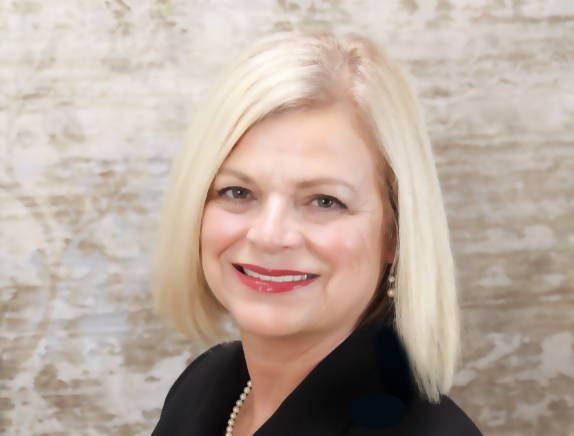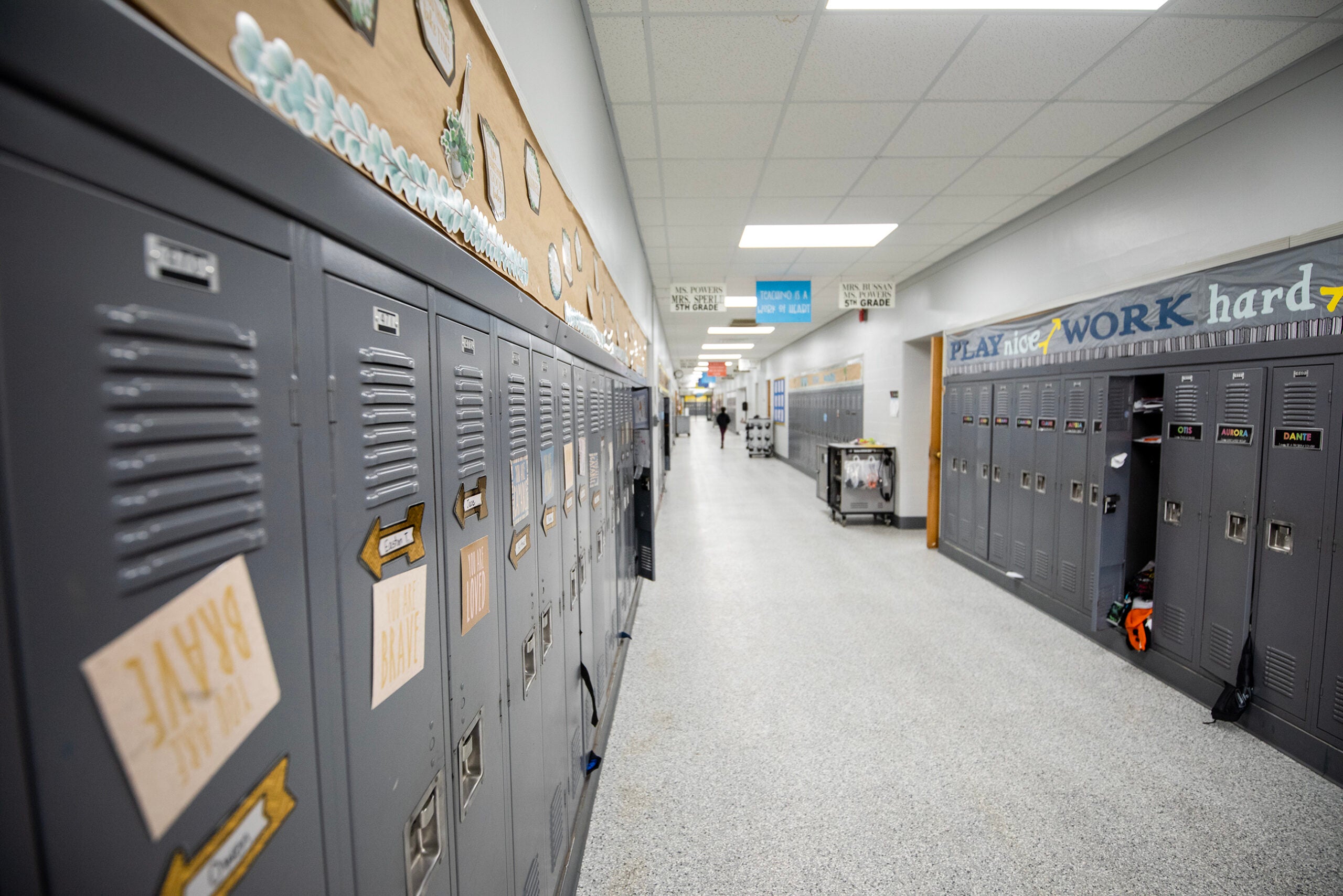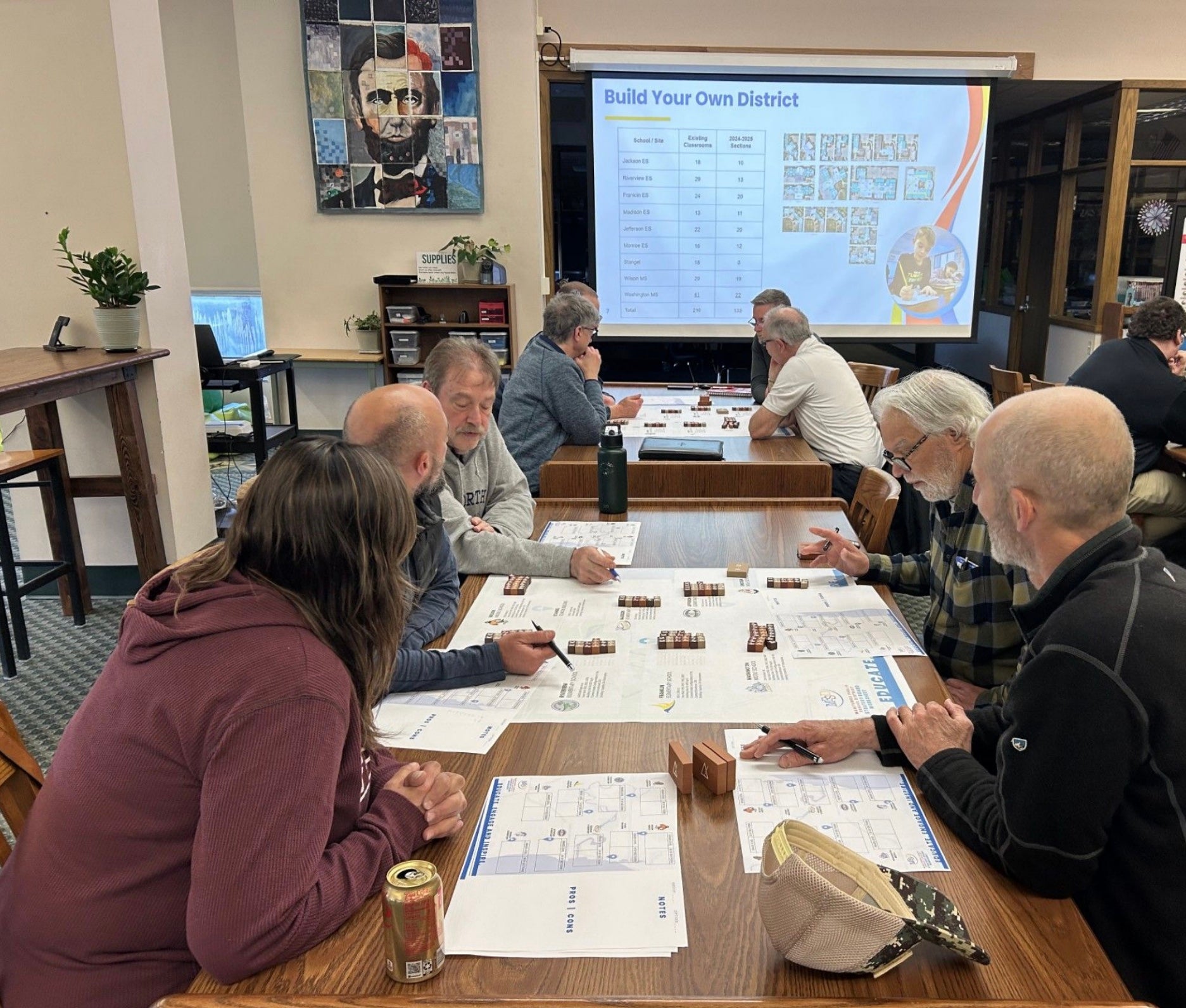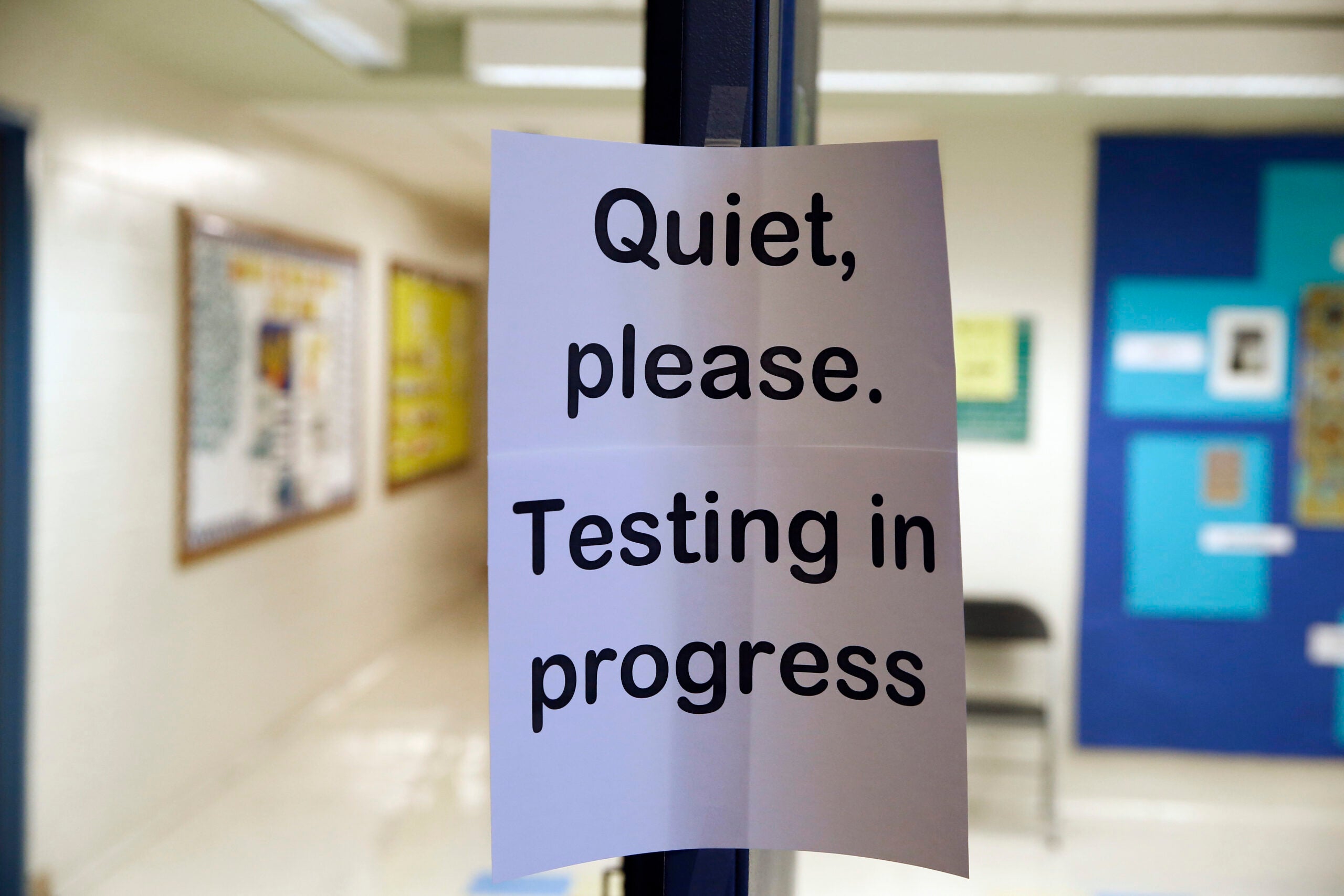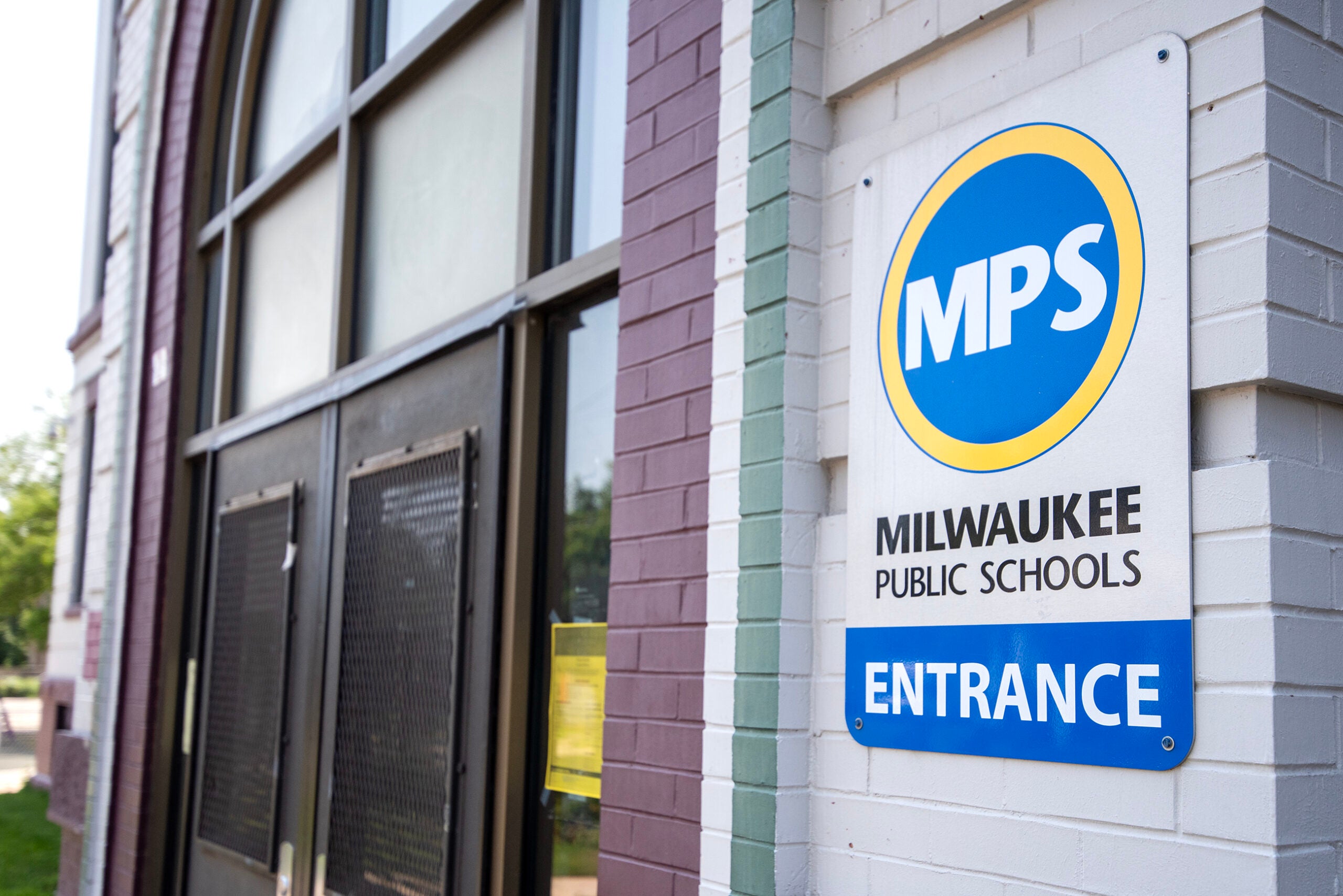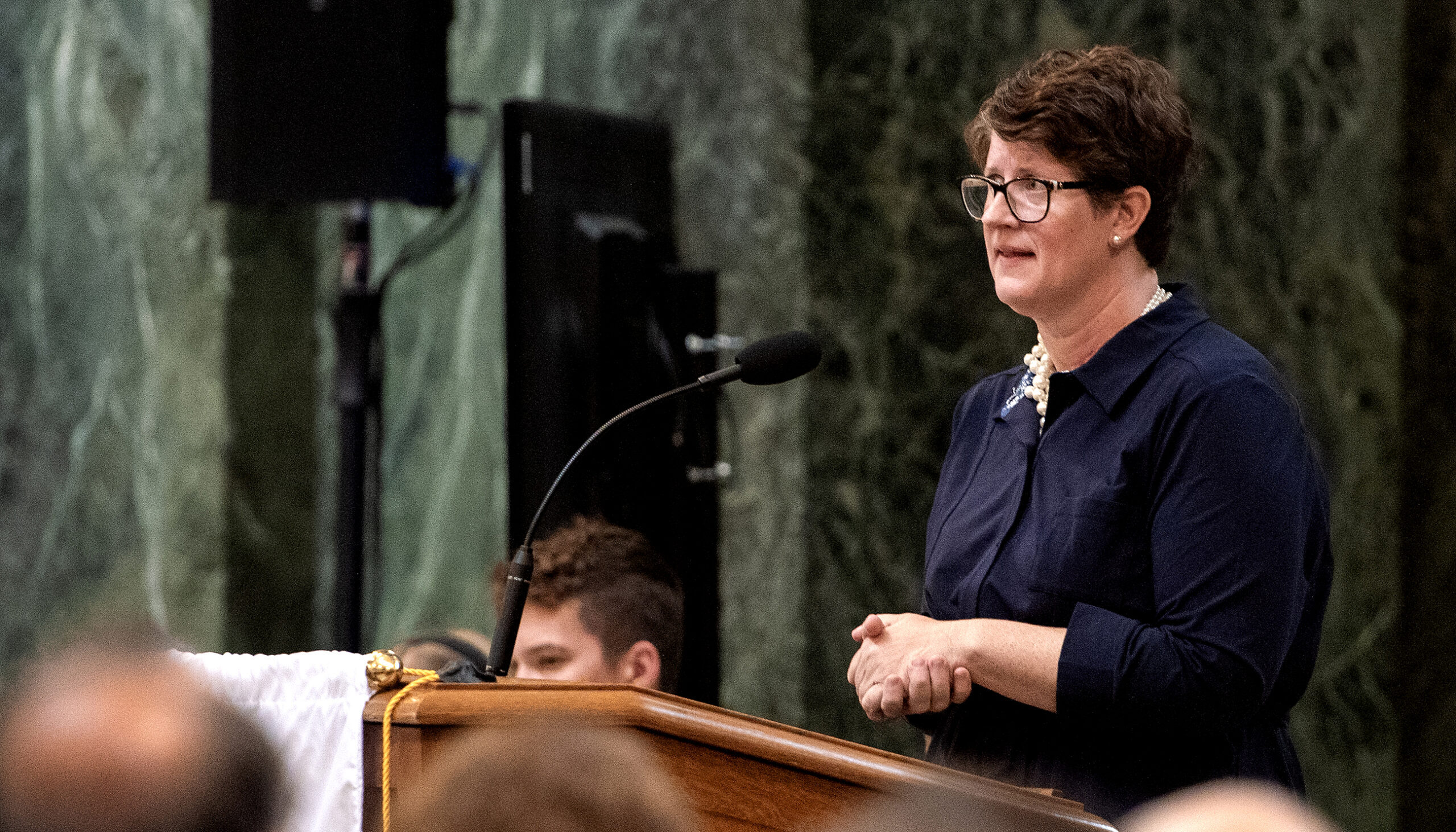With two weeks until the election for state superintendent, candidates Deb Kerr and Jill Underly are making their case for the top education official in the state.
Deborah Kerr is the former superintendent of the Brown Deer School District in northern Milwaukee and says her 20 years of experience in that role has prepared her to lead the state Department of Instruction (DPI) and tackle issues like the achievement gap.
Kerr recently spoke with WPR’s “The Morning Show” host Kate Archer Kent ahead of the April 6 election.
News with a little more humanity
WPR’s “Wisconsin Today” newsletter keeps you connected to the state you love without feeling overwhelmed. No paywall. No agenda. No corporate filter.
The interview has been edited for brevity and clarity.
Kate Archer Kent: Why do you feel you’re the best candidate for state superintendent?
Deborah Kerr: I’ve dedicated the last 40 years of my life to education. I’m parochial educated and public school dedicated. I’ve worked in all sectors. I taught in a private school, I organized a 4K charter school and I’ve been a superintendent in Wisconsin for the last 20 years. I have experience at a small rural school in western Kenosha County for K-8th, and then experience in a very urban district — Brown Deer School District — for the last 13 years.
I also have unique experiences at the state and national level. I’ve been an elected president not only for Rotary in the North Shore, but our state superintendents association, as well as our national superintendents association. I’ve had the experience of working with legislators on both sides of the aisle, not only at the state Capitol, but also on Capitol Hill in Washington, D.C.
KAK: Looking at the pandemic, should the state require all schools to start earlier than normal next fall to make up for learning lost during the pandemic?
DK: Absolutely, that should be a priority. I know that each local community will need to make that decision for themselves, but I think the problem has been there’s been such a lack of meaningful leadership from the local, state and national level. DPI has to be an agent of change, an agent of innovation and an agency of support. And that’s not happened over the last couple of years.
KAK: Wisconsin leads the nation in having the largest gap between Black and white academic success. Our current state superintendent, Carolyn Stanford Taylor says Wisconsin’s achievement gap is a crisis. What in your track record shows you’re ready to address this crisis?
DK: I’m the only candidate who has had experience of turning around a district. The Brown Deer school district is a district of 80 percent students of color and 50 percent economically disadvantaged. And we work together to address the achievement gap. We acknowledged it. We didn’t blame anyone for it. No teachers, no students, no families. And we said we can do better. And we put targeted resources, starting with reading. We got back to the basics using phonics.
And that’s what I would propose statewide because right now we have 400 different ways of teaching reading across the state. And our teachers need more support and aligned resources and curriculum and assessments to make sure all kids are reading at grade level. At Brown Deer, we did just that, over the last five years we have an increased trajectory of closing the achievement gap and also having close to 100 percent of graduation of all students in their career in Brown Deer. The things I did at Brown Deer can be scalable across the state.
KAK: I want to address a criticism. During your time as Brown Deer superintendent, you discovered a business manager had cost the district hundreds of thousands of dollars, lost government aid, missed bills, late tax payments. But you called this person a “good steward of public funds” in a recommendation letter. Your opponent has cited this case to criticize your campaign. What is your response?
DK: I’ve been a superintendent for 20 years and in education for almost 40, and anyone who has experience in employment law and contracts would understand that personnel issues are very complicated and to make these kinds of accusations is unfair.
In fact, this is a criticism of my community of Brown Deer and my leadership. I would have never been a superintendent for 13 years in Brown Deer if I didn’t handle that properly and working alongside my school board. So I’m very disappointed that her team has decided to put all this money into attack ads using dark money against me.
KAK: Let’s talk about the private school voucher programs. Your opponent wants to freeze enrollment in the programs. And you talked about evaluating vouchers, bringing people to the table to talk and whether the private school voucher program should expand, should stay the same, should stop. Where are you at?
DK: I trust parents. I believe that all parents should have the liberty to choose their own circumstances. And I think my opponent is being very disingenuous. She sent her children to private schools and then she wants some of my Black and brown parents not to have those same choices in their local neighborhoods when they don’t feel their public schools are adequate.
Let’s try to work together to build some consensus, because I think it’s possible. The question should be how can we offer high quality education for all students in the state of Wisconsin? And then what does that look like? What does accountability mean? What are those metrics? And then how do we pay for it? If we’re going to create a world-class education system that is the highest performing in the country, we need to all be on the same page. High tide, raise all boats.
Wisconsin Public Radio, © Copyright 2025, Board of Regents of the University of Wisconsin System and Wisconsin Educational Communications Board.

